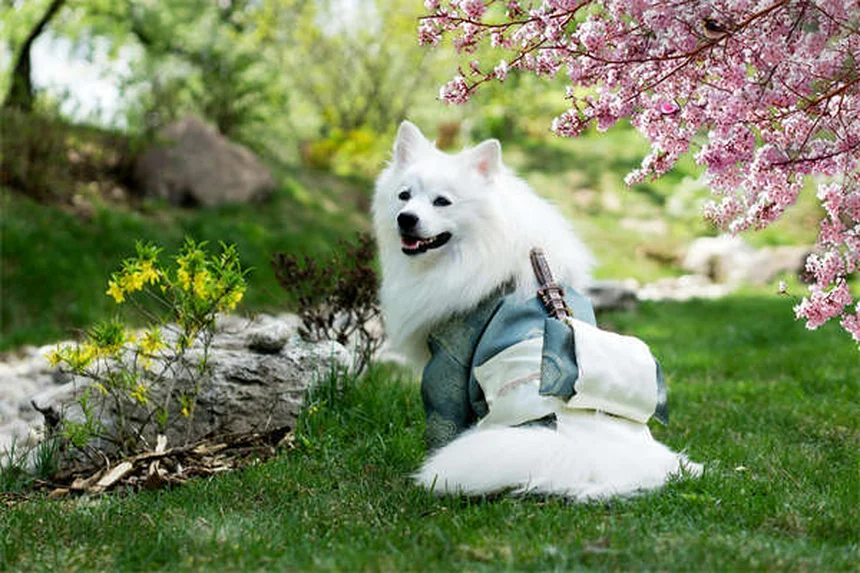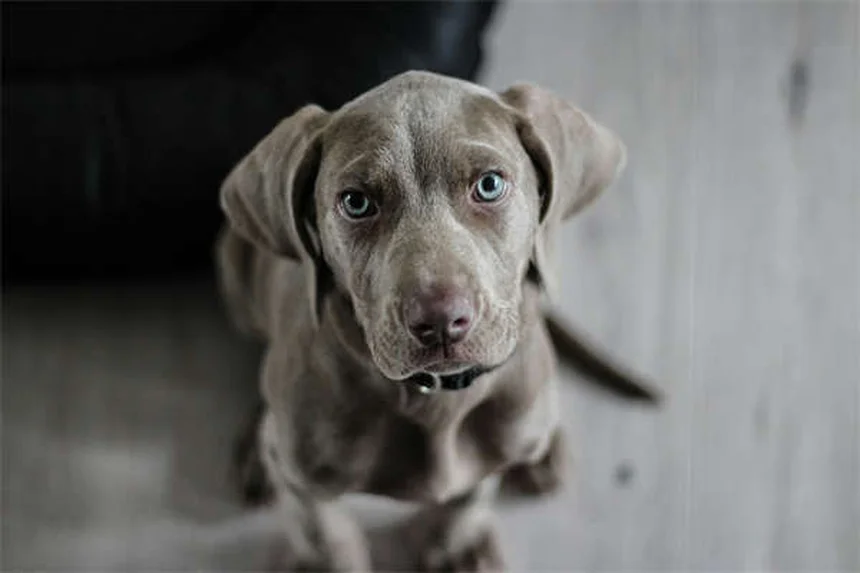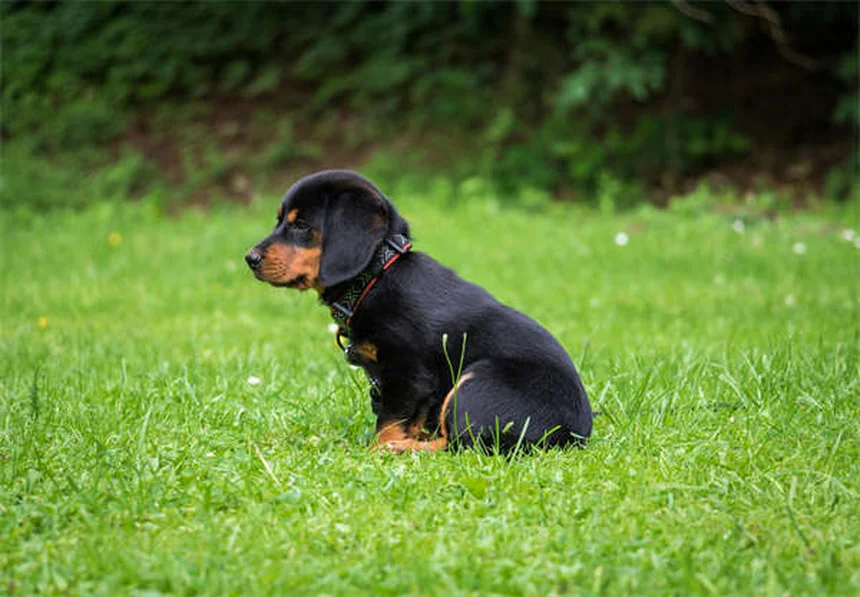Looking for the best hunting dog breeds to join your outdoor adventures? The answer is: America has an incredible variety of specialized hunting dogs perfect for every type of game! From water-loving Labrador Retrievers to scent-tracking Bloodhounds, these canine companions have been bred for generations to excel in the field. I've hunted with dozens of breeds over the years, and let me tell you - when you find the right dog, it's like having a four-legged superpower by your side. Whether you're after ducks, rabbits, or big game, we'll help you discover the perfect breed that matches your hunting style and becomes your most loyal partner in the wild.
E.g. :IMM in Horses: 7 Key Facts About This Genetic Muscle Disorder
Advertisement
- 1、Meet Your Perfect Hunting Companion
- 2、The Ultimate Hunting Dog Lineup
- 3、Training Your Hunting Partner
- 4、Safety First - For You and Your Dog
- 5、Choosing Your Perfect Match
- 6、Making Memories in the Field
- 7、Beyond the Basics: Advanced Hunting Dog Insights
- 8、Hunting Dog Nutrition Secrets
- 9、Seasonal Care Strategies
- 10、Solving Common Hunting Dog Problems
- 11、The Future of Hunting Dogs
- 12、Your Hunting Dog Lifestyle
- 13、FAQs
Meet Your Perfect Hunting Companion
Why Hunting Dogs Are Special
You know what's amazing? Hunting dogs aren't just pets - they're highly skilled partners with centuries of specialized breeding behind them. Whether you're after birds, rabbits, or big game, there's a perfect four-legged teammate waiting to join your adventures.
Let me tell you about my first hunting trip with a Labrador Retriever. That dog could literally smell ducks before I could see them! His excitement was contagious, and watching him work was like seeing poetry in motion. That's when I truly understood why hunters say a good dog is worth ten men.
Different Dogs for Different Jobs
Not all hunting dogs are created equal. Just like you wouldn't use a fishing rod to hunt deer, you need to match the dog to your prey. Here's a quick comparison of the main types:
| Type | Specialty | Best For |
|---|---|---|
| Bird Dogs | Pointing, flushing, retrieving | Ducks, pheasants, quail |
| Hounds | Tracking by scent or sight | Rabbits, foxes, raccoons |
| Curs | Treeing prey | Raccoons, squirrels |
| Terriers | Digging and underground pursuit | Foxes, rats, badgers |
The Ultimate Hunting Dog Lineup
 Photos provided by pixabay
Photos provided by pixabay
Top Waterfowl Specialists
If you're like me and love duck hunting, these breeds will make your heart skip a beat:
Labrador Retriever - The Michael Jordan of hunting dogs. Their webbed feet and waterproof coat make them swimming machines. I've seen Labs retrieve dozens of ducks in freezing water without missing a beat.
Chesapeake Bay Retriever - Built like a tank with an oily coat that shrugs off icy water. These tough cookies were literally bred for the Chesapeake's brutal winters.
Did you know a Golden Retriever once retrieved over 5,000 ducks in its lifetime? Now that's what I call job dedication!
Bird Hunting All-Stars
For upland game birds, you can't beat these performers:
Pointer - When this dog freezes mid-stride, you know birds are nearby. It's like they have a built-in bird radar!
English Setter - These elegant hunters "set" (lie down) when they find prey. Watching them work through tall grass is pure art.
My buddy's Brittany once pointed out a covey of quail hidden so well we would've walked right past them. That dog earned extra treats that day!
Scent Tracking Superstars
When you need a nose that never quits:
Bloodhound - Their sense of smell is so accurate it's admissible in court! Just try keeping up with one on a hot trail.
Beagle - Don't let their cute looks fool you. These little powerhouses can follow a rabbit scent for miles with their nose to the ground.
Ever wonder why hounds have such long ears? Those floppy flaps actually help trap scent particles near their nose - nature's perfect scent-collection system!
Training Your Hunting Partner
 Photos provided by pixabay
Photos provided by pixabay
Top Waterfowl Specialists
You wouldn't hand car keys to a toddler, right? Same goes for taking an untrained dog hunting. Start with these fundamentals:
- Recall commands (come when called, no matter what)
- Steadiness around gunfire (gradual exposure is key)
- Basic obedience (sit, stay, heel)
I made the mistake of skipping gunfire training once. Let's just say my first shot scared the poor dog more than the ducks! Lesson learned.
Specialized Hunting Training
Once basics are solid, it's time for the fun stuff:
For retrievers:
- Marking fallen birds
- Gentle mouth handling
- Swimming with purpose
For pointers/setters:
- Honoring another dog's point
- Working within gun range
- Steady to wing and shot
Pro tip: Always end training sessions on a positive note. You want your dog excited for the next session!
Safety First - For You and Your Dog
Gear Essentials
Would you go hunting without your gun? Then don't skimp on dog gear either:
- High-visibility vest (orange or blaze pink)
- Protective boots for rough terrain
- First aid kit (include vet wrap and styptic powder)
- Plenty of water and collapsible bowl
I'll never forget the time my dog cut his paw on ice. That first aid kit saved our hunting trip - and maybe his foot!
 Photos provided by pixabay
Photos provided by pixabay
Top Waterfowl Specialists
Keep your partner in top shape with:
- Regular vet checkups
- Up-to-date vaccinations
- Flea/tick/heartworm prevention
- Proper conditioning (hunting season doesn't start opening day!)
Remember, a tired dog is a happy dog - but an exhausted dog is an accident waiting to happen. Know your dog's limits.
Choosing Your Perfect Match
Breed Isn't Everything
While breed gives you clues, individual personality matters too. Ask yourself:
- How much exercise can I really provide?
- Do I want a velcro dog or independent worker?
- Can I handle stubbornness or need an eager-to-please type?
My neighbor got a high-energy German Shorthaired Pointer thinking it would motivate him to exercise more. Let's just say... the dog is still waiting for those promised runs!
Puppy vs. Started Dog
This is the hunting dog equivalent of "build vs. buy":
| Puppy | Started Dog | |
|---|---|---|
| Cost | $ | $$$ |
| Training Time | 1-2 years | Ready now |
| Bonding | Strong | Needs work |
There's no right answer - just what fits your lifestyle and patience level!
Making Memories in the Field
The Hunter-Dog Bond
There's nothing quite like watching your dog do what generations of breeding prepared them for. That moment when:
- Your retriever locks eyes on a falling duck
- Your pointer freezes like a statue
- Your hound's bay echoes through the woods
These are the moments we live for as hunting dog owners. The harvested game is just icing on the cake.
Beyond Hunting
The beautiful thing about hunting dogs? They make fantastic companions off-duty too. Many excel at:
- Therapy work
- Search and rescue
- Agility competitions
- Being the world's best couch potato
My Lab may be a duck-hunting machine, but he's equally happy retrieving tennis balls or stealing my spot on the recliner!
So what are you waiting for? Your perfect hunting partner is out there. Whether you choose a bouncy Brittany or a determined Bloodhound, one thing's certain - your hunting adventures will never be the same!
Beyond the Basics: Advanced Hunting Dog Insights
The Science Behind Their Superpowers
Ever wonder how hunting dogs perform those incredible feats? It's not just training - their biology gives them superhuman (supercanine?) abilities. A dog's nose contains up to 300 million scent receptors, compared to our measly 6 million. That's like comparing a bicycle to a Ferrari!
Let me share something mind-blowing I learned from a canine researcher. When tracking, dogs don't just follow the strongest scent - they can actually separate individual scent components in their brain. It's like they're reading an invisible chemical map we can't even comprehend. No wonder my beagle can find that one specific rabbit in a field full of animal smells!
Modern Hunting Dog Tech
We're living in the golden age of hunting dog gadgets! Here are some game-changers I've tested:
GPS collars - Never lose your dog again, even if they chase a scent miles away. The high-end models show real-time direction and speed. I once watched my pointer's dot on the screen stop suddenly - sure enough, he'd found birds!
Vibration training collars - These aren't shock collars! Gentle vibrations help reinforce commands at distance. Perfect for that stubborn moment when your dog pretends not to hear "come."
Did you know some hunters now use drones to help train retrievers? We launch bumper dummies from drones to simulate long-distance water retrieves. My Lab thinks it's the best game ever invented!
Hunting Dog Nutrition Secrets
Fueling Performance
You wouldn't eat fast food before running a marathon, right? The same goes for your hunting dog. During season, they need 30-50% more calories than normal. But it's not just about quantity - quality matters too.
Look for foods with:
- High protein (30%+) from real meat sources
- Healthy fats for energy and coat health
- Joint supplements like glucosamine
- Limited fillers (corn, wheat, soy)
After switching to a premium food, I noticed my dog could hunt all morning without tiring. His coat got shinier too - bonus!
Hydration Hacks
Dehydration sneaks up fast on hunting dogs. Here's a scary fact: A 15% water loss can be fatal. Watch for these signs:
- Thick, sticky saliva
- Bright red gums
- Lethargy or confusion
- Loss of skin elasticity
My field trick? Freeze water bottles overnight. They melt slowly in the dog's travel crate, providing cold water all day. Plus, dogs love licking the ice!
Seasonal Care Strategies
Summer Survival Tips
Heat is more dangerous to dogs than cold. Their limited sweat glands (only in paw pads!) make temperature regulation tough. On hot days, I:
- Hunt early morning/late evening
- Bring a cooling vest soaked in water
- Watch for heatstroke signs (excessive panting, stumbling)
- Avoid hot surfaces that can burn paws
Ever seen a dog do the "hot pavement dance"? It's funny until you realize their paws are burning. Test surfaces with your hand - if it's too hot for you, it's too hot for them.
Winter Warrior Prep
While many hunting breeds handle cold well, extreme conditions require extra care:
- Musher's wax protects paws from ice and salt
- Doggie jackets help short-haired breeds
- Check for ice balls between toes frequently
- Increase food portions - staying warm burns calories!
My Chesapeake once broke through thin ice. Thanks to his waterproof coat and our training, he knew exactly how to scramble out. Always prepare for the unexpected!
Solving Common Hunting Dog Problems
Breaking Bad Habits
Even the best dogs develop quirks. Here's how I've fixed common issues:
Gun Shyness: Start with cap guns at distance, gradually closer. Pair shots with treats to create positive associations. Never force a scared dog - patience wins here.
Soft Mouth: For retrievers who damage game, use frozen birds or special training bumpers. Teach "hold" and "give" commands separately from retrieving.
My worst training fail? Accidentally teaching my dog that "whoa" meant "spin in circles." Took weeks to undo that one! Moral: Be consistent with commands.
When Aging Slows Them Down
Watching your hunting partner slow down is tough. But with adjustments, many dogs can hunt well into senior years:
- Shorter, more frequent hunts
- Joint supplements and vet-approved pain meds
- Warmer gear for thinning coats
- Letting them "mentor" a younger dog
My 12-year-old Lab can't do all-day duck hunts anymore, but he still lights up when he sees me grab the shotgun. We've adapted to quick morning hunts - it's about the time together now.
The Future of Hunting Dogs
Breeding Innovations
Modern breeders are creating amazing specialized lines. Some focus on:
- Hypoallergenic hunting breeds (great for families)
- Compact versions of traditional breeds (easier travel)
- Dual-purpose dogs (hunt + family companion)
- Health-tested lines to reduce genetic issues
I recently met a breeder developing Labrador/Brittany crosses - all the bird drive of a spaniel with the water love of a Lab. The puppies were adorable little hunting machines!
Training Evolution
Old-school "break their spirit" methods are fading. Today's best trainers use:
- Positive reinforcement science
- Relationship-based methods
- Understanding canine psychology
- Customized approaches for each dog
Why fight against a dog's nature when you can work with it? My current pup learned retrieve commands faster through play than my old-school trained dogs ever did.
Your Hunting Dog Lifestyle
Beyond the Hunt
The best hunting dogs live full, rich lives between seasons. Here's how we keep skills sharp:
- Year-round scent games (hide treats in the yard)
- Swimming sessions to maintain water skills
- Regular "mock hunts" with training dummies
- Dog sports like barn hunt or nose work
My neighbor thinks I'm crazy when he sees me launching bumpers into my pool in January. But come duck season, who's laughing when my dog makes perfect retrieves?
Building Your Community
Hunting dog people are some of the best folks around. Get involved with:
- Local hunt tests and field trials
- Breed-specific clubs and events
- Conservation organizations
- Youth mentoring programs
Some of my closest friendships started over discussions about training methods or shared hunting trips. These connections make the journey even richer.
At the end of the day, it's not just about the game you bring home. It's about that wagging tail when you grab your gear, the proud look when they deliver a perfect retrieve, and the quiet companionship in the blind. That's the real magic of hunting with dogs.
E.g. :What are the best hunting dog breeds that double as good family ...
FAQs
Q: What's the best all-around hunting dog breed?
A: If I had to pick one best all-around hunting dog, it would be the Labrador Retriever. Here's why: Labs excel at waterfowl hunting with their webbed feet and waterproof coats, but they're also versatile enough to handle upland game. I've personally seen Labs retrieve ducks in freezing temperatures and track wounded deer through thick brush. Their intelligence and eagerness to please make them relatively easy to train compared to some other breeds. Plus, they double as fantastic family pets when you're not in the field. Just remember - no single breed does everything perfectly, but Labs come closest to being the Swiss Army knife of hunting dogs.
Q: How do I choose between a pointer and a flusher for bird hunting?
A: Choosing between a pointer (like an English Pointer) and a flusher (like a Springer Spaniel) depends on your personal hunting style. Pointers freeze when they scent birds, allowing you to approach carefully - perfect for open fields where you need that extra moment. Flushers charge right in to make birds take flight, which works great in thick cover where visibility is low. I've hunted with both, and each has its advantages. If you prefer a more controlled hunt with time to get positioned, go pointer. If you like action-packed hunts in dense brush, choose a flusher. Either way, you're in for an exciting experience!
Q: Are hound dogs good for first-time hunting dog owners?
A: Honestly? Hounds can be challenging for first-timers. While breeds like Beagles and Coonhounds are incredible at tracking game, they're also independent thinkers with strong instincts. I've seen many new owners struggle when their hound catches an interesting scent and completely tunes out commands. That said, if you're willing to put in extra training time and don't mind some stubbornness, hounds can be wonderfully rewarding. My advice? Start with a more biddable breed like a Labrador or Golden Retriever to learn the ropes, then consider adding a hound to your team once you've got some experience under your belt.
Q: How much exercise do hunting dogs need when not hunting?
A: These are not couch potato dogs! Most hunting breeds need at least 1-2 hours of vigorous exercise daily to stay happy and well-behaved. My German Shorthaired Pointer requires a 5-mile run plus training sessions just to take the edge off! Without proper exercise, hunting dogs often develop destructive behaviors from pent-up energy. The exact amount varies by breed - scent hounds may be content with long walks where they can sniff, while pointers and retrievers often need high-intensity activities. Remember, these dogs were bred to work all day in the field, so a quick walk around the block won't cut it!
Q: Can you train an older dog to hunt?
A: Absolutely! While puppies are blank slates, I've successfully trained many adult dogs to become excellent hunting companions. The key is assessing the dog's temperament and drive first. Look for signs of natural ability - does the dog show interest in birds or scents? Is it eager to retrieve? I once trained a 4-year-old rescue Lab who turned out to be one of the best duck dogs I've ever worked with! Older dogs often have better focus and impulse control than puppies. Just be patient, use positive reinforcement, and build on the dog's existing strengths. It's never too late to discover your dog's hidden talents!

